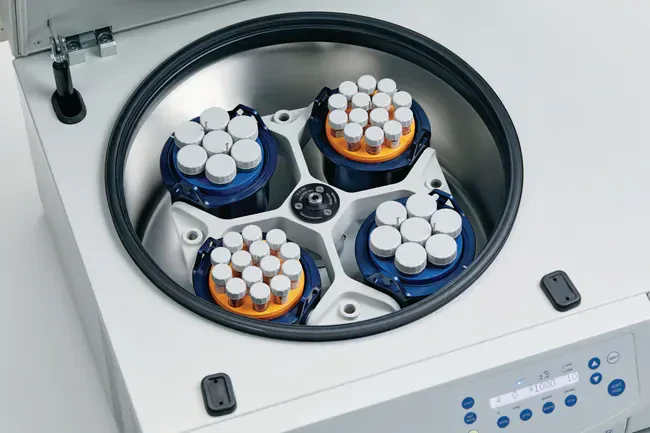When diving into the world of centrifuges, it’s important to first take a moment to really think about what you need. Not all centrifuges are created equal, and understanding your specific requirements can save you time and money. This centrifuge buying guide is here to help you sort through the details.
One of the first things to consider is the type of samples you’ll be working with. Are you handling blood samples, cell cultures, or maybe something more specialized? Different materials and volumes require different categories of centrifuges, such as clinical, micro, or research models, each designed for specific tasks.
Next, think about the capacity you’ll need. If you're working with large volumes, a high-capacity centrifuge will be essential. On the other hand, for smaller experiments or limited samples, a compact model will suffice. Don’t forget to check the rotor options as well; getting the right rotor can make a huge difference in performance.
Another key factor is speed and acceleration. Generally, higher speeds can accelerate your processes, but they also can lead to increased wear and tear. Think carefully about how fast you really need to go, based on the applications you have in mind. This decision can greatly impact your results and equipment longevity.
Finally, consider the budget. There are plenty of options out there to fit various price points, but don’t compromise on quality. Invest in a reliable model from a trusted brand, and you’ll be set up for success. A good centrifuge is worth its weight in gold when it comes to providing consistent results. This is just a glimpse of what to consider, and this centrifuge buying guide will help you navigate to the best choice for your needs!
Key Features to Look For
When diving into the world of centrifuges, having a solid centrifuge buying guide by your side can make all the difference. Here’s what to keep in mind as you shop around:
With these features in mind, you can feel more confident in your centrifuge buying guide journey. Take your time, compare options, and make an informed decision that aligns with your specific needs.
Popular Types of Centrifuges
When diving into the world of centrifuges, it's good to know the most popular types out there. Each type serves a unique purpose, making it easier to find the right fit for your needs. Here’s a quick rundown to help you along your centrifuge buying guide journey.
Clinical Centrifuge: Perfect for medical and clinical labs, this type is designed to separate blood components efficiently. If you're dealing with samples regularly, this is your go-to option. It’s user-friendly, generally has a small footprint, and is available in both fixed and swinging bucket configurations.
Refrigerated Centrifuge: Ideal for sensitive samples that need to stay cool during the centrifugation process. These centrifuges come equipped with temperature control features, making them excellent for biological and biochemical applications. If you’re working with materials that require stability, this one’s a must in your centrifuge buying guide.
Microcentrifuge: For those small-scale experiments, the microcentrifuge is a lifesaver. It’s compact, quick, and typically used for spinning down samples in microcentrifuge tubes. If your lab work involves lots of tiny samples, this little device is super handy and often budget-friendly.
High-Speed Centrifuge: When you need to achieve rapid separation, this centrifuge steps up. It reaches higher speeds than the standard ones, making it great for research labs. If you’re dealing with tough samples or need quick results, this option should be on your radar while going through your centrifuge buying guide.
Tips for Making the Right Choice
When it comes to choosing the right centrifuge, it’s all about knowing what you need. Each lab or home situation is unique, so start by defining your specific requirements. Do you need a centrifuge for clinical work, research, or perhaps even for a home project? Understanding how you plan to use it will help you narrow down your options significantly.
Next, consider the capacity you need. Centrifuges come in various sizes, from small, compact models to larger ones that can handle multiple samples at once. If you work with smaller, individual samples, a smaller capacity unit may be perfect. But if you're focusing on bulk processing, you'll want something with a larger capacity. A quick look at your typical sample size can guide you here.
Don’t forget about the speed and force ratings! Check the maximum RPM and RCF (Relative Centrifugal Force) that the centrifuge can achieve. Higher speeds can be beneficial for certain applications, so it’s a good idea to match these specifications with your intended use. Also, take note of any safety features, like lid locks and imbalance sensors—these can make a big difference in ensuring safe operation.
Lastly, think about the budget, but remember that sometimes you get what you pay for. While it’s tempting to go for the cheapest option, investing in a well-reviewed model that meets your needs can save you money and hassle down the road. This centrifuge buying guide emphasizes not just price, but also reliability and performance; these factors are key to making a smart choice.

